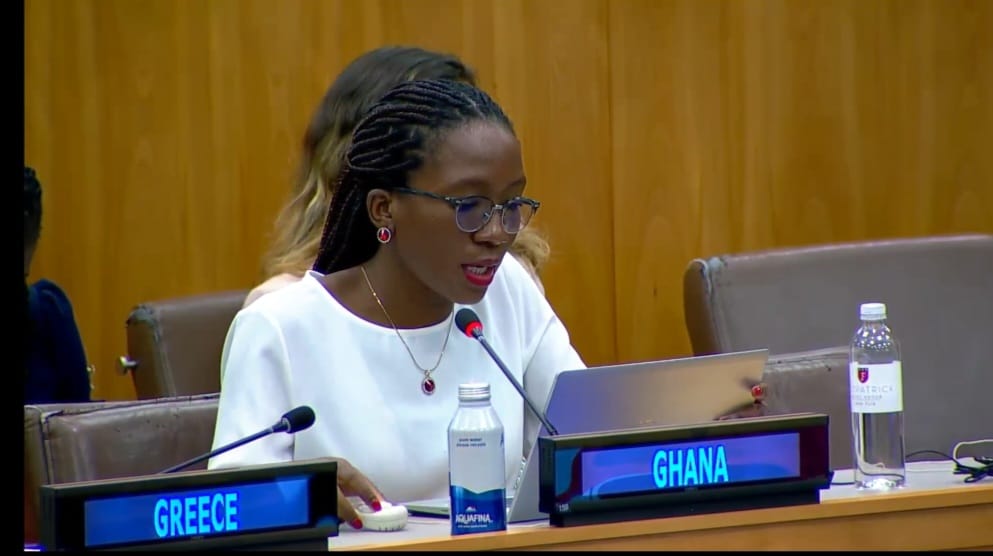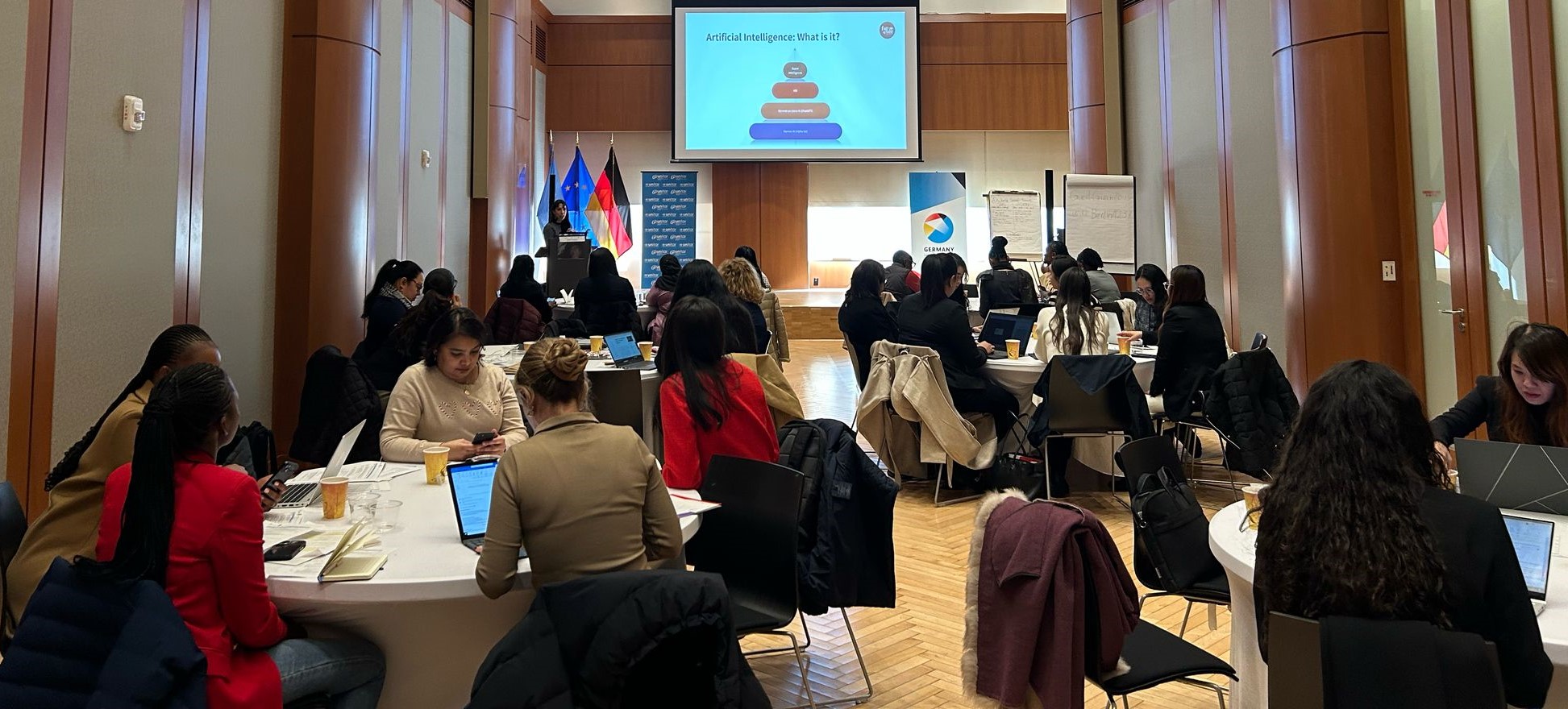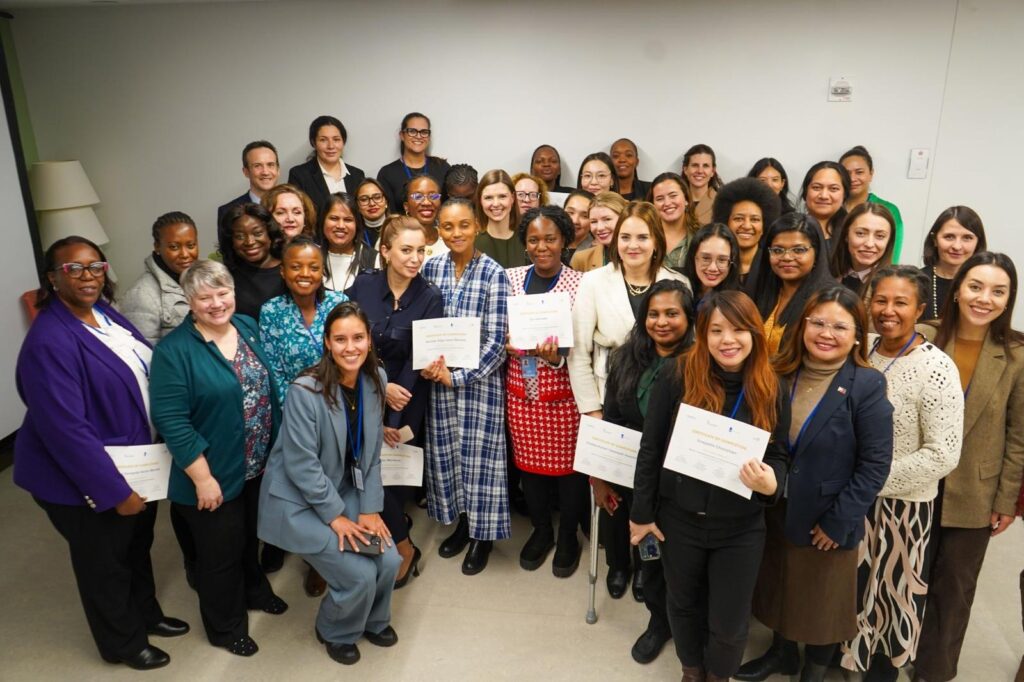Women in International Security and Cyberspace Fellowship
Table of content
- Background information
- Added value of the project
- Expected Outcomes
- Actions and Outputs
- Events in which the fellows participate
- Contact email
Background information
The Women in International Security and Cyberspace (WIC) Fellowship, also known as Women in Cyber Fellowship, aims to address the need for a greater proportion of representation from women at the United Nations negotiations concerning cyberspace. The fellowship is jointly organized and sponsored by the Governments of Australia, Canada, Germany, the Netherlands, New Zealand, the United Kingdom, and the United States.
The WiC Fellowship has become a transformative force in advancing gender inclusivity in global cyber diplomacy as it aims to ensure equal and effective representation of women diplomats from all regions in United Nations cyber negotiations. The program seeks to develop cyber governance capacities, providing access to workshops and training as well as direct support to Fellows for their participation in UN First and Third Committee processes.
The current edition of the Fellowship has supported over 120 women from 55 underrepresented, small, and developing states to participate in key UN cyber negotiations, including the Open-Ended Working Group (OEWG) in Security of and in the Use of ICTs in the UN First Committee and the Ad Hoc Committee (AHC) to Elaborate a Comprehensive International Convention on Countering the Use of Information and Communications Technologies for Criminal Purposes in the UN Third Committee.
The OEWG 2021–2025 concluded in July 2025 with consensus on its final report, establishing a new permanent Global Mechanism to continue discussions on responsible State behaviour in cyberspace and to advance capacity building in ICT security. The AHC process concluded with the adoption of the United Nations Convention against Cybercrime by the General Assembly on 24 December 2024 (resolution 79/243). As the first comprehensive global treaty on this issue, the Convention sets out measures to prevent and combat cybercrime and provides a framework to strengthen international cooperation, including in the sharing of electronic evidence for serious crimes.
Added value of the Project
As recognized by the Women, Peace and Security agenda, women are differently and uniquely affected by conflict and threats to international peace and security. UNIDIR’s report into gender balance in arms control, non-proliferation and disarmament diplomacy ‘Still Behind the Curve’, found that the UN First Committee (under which the Open-Ended Working Group (OEWG) is convened) has the lowest proportion of female diplomats of any of the UNGA’s Main Committees. In addition, while estimates vary, women represent less than 25 per cent of the cyber security workforce. Combined, this highlights the need to ensure women are empowered to participate in discussions concerning cyberspace.
Expected Outcomes
The fellowship provides opportunities for knowledge and skills development related to cyber diplomacy, with Fellows participating in substantive sessions with their national delegation. The training elements of the fellowship therefore have a particular focus on international security and cybercrime, in addition to exploring the intersections of gendered issues of security with cyber policy.
- Attendance of fellows at UN negotiations on cyber, including ongoing processes in the UN First and Third Committees
- Program of networking and developmental workshops arranged by co-sponsors
- Improved coordination and impact of the Women in Cyber Fellowship program
- The establishment of an international cyber stability framework promoting responsible behavior in cyberspace
- Stronger cybercrime cooperation, prosecution, and prevention
- The development of cyber security capabilities for a strong and resilient national cyber security posture
- Advocacy for the protection of human rights and democracy online
Photo Gallery
Actions and Outputs
Participation of Fellows in UN Sessions
The donor countries provide support to fellows in attending negotiations in the UN cyber processes (OEWG on the use of ICTs and AHC on Cybercrime). The GFCE Secretariat provides administrative and logistical support enabling fellows to travel to these meetings and actively participate. The program of meetings follows the schedules set out by the respective UN Process.

Ghana- Emmanuella Darkwah
Training, workshops, and webinars
The donor countries arrange trainings and workshops corollary to the UN substantive sessions. These events are a core feature of the fellowship, helping fellows to prepare for upcoming negotiations, develop knowledge on the substantive content of discussions, as well as developing skills, for example in cyber diplomacy. Prior to the OEWG 9th substantive session in December (December 2-6), the cohort of 47 WiC fellows participated in a one-day online training on “Strengthening Capacity Building and Technical Skills for the Open-Ended Working Group” on November 26, facilitated by UNITAR. This training provided a crash course on the UN Cyber Framework, highlighted the expected outcomes of the session, and included practical exercises to improve drafting interventions and formulating national positions on current issues like threats and confidence-building measures in cybersecurity.
During the OEWG week, workshops focused on negotiation skills, strategic thinking, and networking opportunities. These sessions allowed fellows to connect with diplomats and global leaders to discuss key topics such as International Humanitarian Law, the role of Artificial Intelligence (AI) in peace and security, and gender-sensitive approaches to cybersecurity.

WiC Training on Emerging Threats and Artificial Intelligence at the Permanent Mission of Germany to the UN.
Networking events
One of the main aims of the Women in International Security and Cyberspace Fellowship program is the creation of a robust and expanding network of female diplomats and other professionals interested in cyber and international security issues. In its second edition, the program currently supports over 47 fellows to actively participate in ongoing UN processes and engage with WiC alumni through various networking events, such as the WiC Reception and catered networking lunch.
Additionally, the program facilitates connections with other Women in Cyber networks and initiatives, creating external momentum around gender issues in international security. To further enhance these efforts, a proposed mentorship program aims to pair fellows with experienced professionals, offering guidance and fostering deeper professional relationships within the field.

WiC Reception and Training Certificate Ceremony at the Permanent Mission of the Netherlands to the UN.
OEWG Interventions

Increasing Women’s Participation in UN Cybersecurity Discussions
Women’s participation in the UN Open-Ended Working Group (OEWG) on Security of and in the Use of ICTs has steadily grown, reflecting ongoing efforts to enhance gender inclusivity in global cybersecurity discussions.
In the initial session in 2021, women accounted for 37% of interventions, a figure that has since risen to 53% in the 11th and final substantive session in 2025.’
This progress underscores the impact of sustained advocacy, capacity building initiatives, and institutional support – particularly through programs like the Women in Cyber (WiC) Fellowship, which has played a key role in empowering women to engage in international cybersecurity policymaking.
Impact of WiC Fellowship
Events in which the fellows participate
OEWG Eleventh Substantive Session (7-11 July 2025)
Substantive negotiations of the UN process. Fellows receive support to participate in the meeting.
OEWG Tenth Substantive Session (17-21 February 2025)
Substantive negotiations of the UN process. Fellows receive support to participate in the meeting.
OEWG Ninth Substantive Session (2-6 December 2024)
Substantive negotiations of the UN process. Fellows receive support to participate in the meeting.
AHC Reconvened Concluding Session (29 July – 9 August 2024)
Substantive negotiations of the UN process. Fellows receive support to participate in the meeting.
OEWG Eighth Substantive Session (8-12 July 2024)
Substantive negotiations of the UN process. Fellows receive support to participate in the meeting.
OEWG Seventh Substantive Session (4-8 March 2024)
Substantive negotiations of the UN process. Fellows receive support to participate in the meeting.
AHC Seventh/Concluding Session (29 January – 9 February 2024)
Substantive negotiations of the UN process. Fellows receive support to participate in the meeting.
OEWG Sixth Substantive Session (11-15 December 2023)
Substantive negotiations of the UN process. Fellows receive support to participate in the meeting.
AHC Sixth Session (21 August – 1 September 2023)
Substantive negotiations of the UN process. Fellows receive support to participate in the meeting.
OEWG Fifth Substantive Session (24-28 July 2023)
Substantive negotiations of the UN process. Fellows receive support to participate in the meeting.
AHC Fifth Sesson (11-21 April 2023)
Substantive negotiations of the UN process. Fellows receive support to participate in the meeting.
OEWG Fourth Substantive Session (6-10 March 2023)
Substantive negotiations of the UN process. Fellows receive support to participate in the meeting.
AHC Fourth Session (9-20 January 2023)
Substantive negotiations of the UN process. Fellows receive support to participate in the meeting.
AHC Third Session (29 August - 9 September 2022)
Substantive negotiations of the UN process. Fellows receive support to participate in the meeting.
OEWG Third Substantive Session (25-29 July 2022)
Substantive negotiations of the UN process. Fellows receive support to participate in the meeting.
AHC Second Session (30 May – 10 June 2022)
Substantive negotiations of the UN process. Fellows receive support to participate in the meeting.
UN OEWG Second Substantive Session (28 March – 1 April 2022)
Substantive negotiations of the UN process. Fellows receive support to participate in the meeting.
Workshop – Cyber Diplomacy: UN Open-ended Working Group (22 March 2022)
This workshop provided fellows with an overview of key issues ahead of the second substantive session of the UN Open-ended Working Group (OEWG). The workshop was a refresher on the OEWG – its history, procedural developments, and current status – with fellows discussing strategies for tackling concerns raised by the issues under negotiation.
AHC First Session (28 February – 11 March 2022)
Substantive negotiations of the UN process. Fellows receive support to participate in the meeting.
Contact email
For further enquiries, please reach out to Klara Marland or contact us at wic@thegfce.org.
